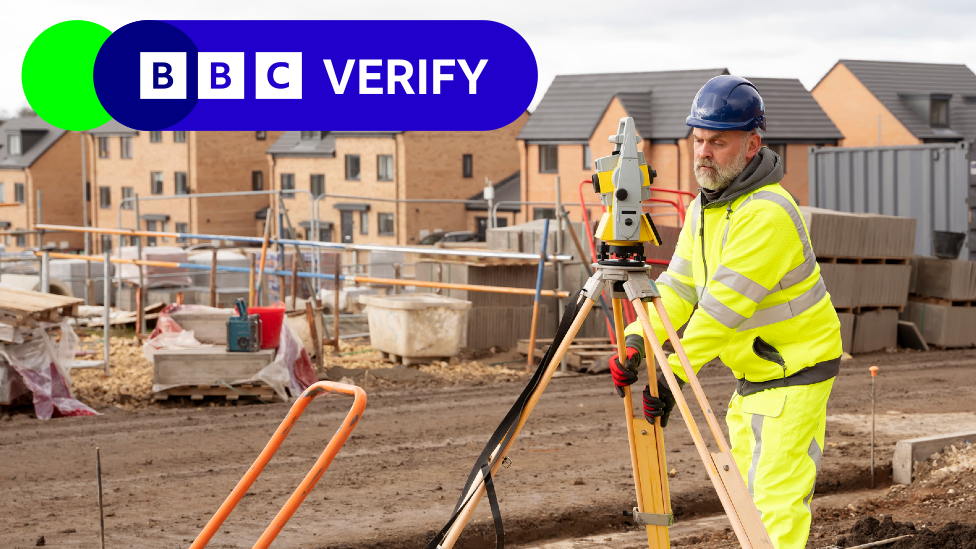The village almost doubling after developer 'free-for-all'
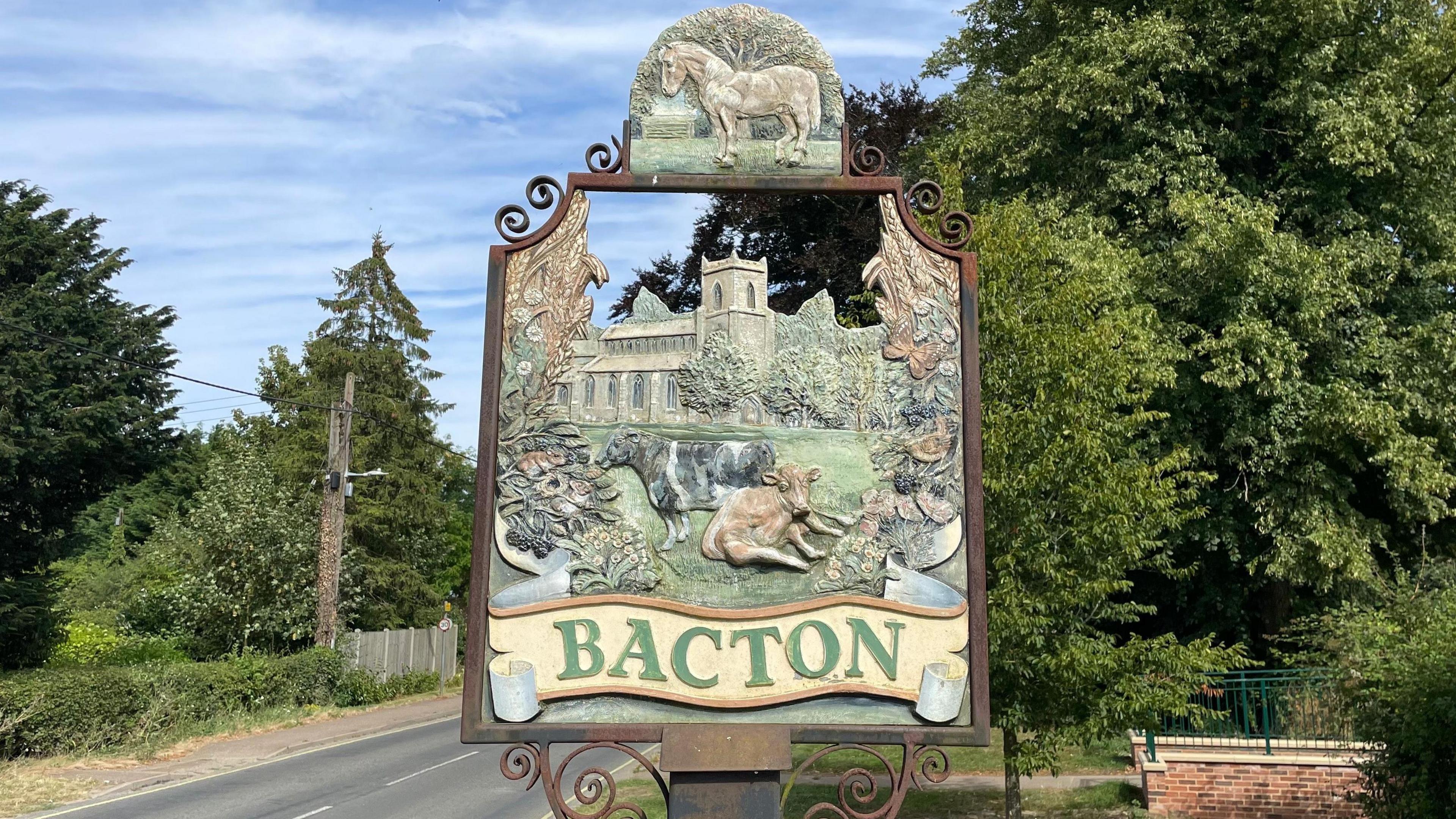
Six large development sites have been given planning permission in Bacton
- Published
Bacton is booming. Hundreds of new homes are being built in the Suffolk village after a decade of limited growth. But is life there under threat from the pace of change?
Between 2011 and 2021, Bacton gained just 13 new households. But over recent years, planning permission has been granted for 396 new homes in the village.
Not enough homes were being built in Mid Suffolk District Council's area, so it was placed under different planning rules.
These made it harder to refuse planning permission for new developments.
One local councillor says that has resulted in a "free-for-all" for developers.
Villagers say they welcome newcomers, but the pace of growth has been too fast and the impact on infrastructure too great.
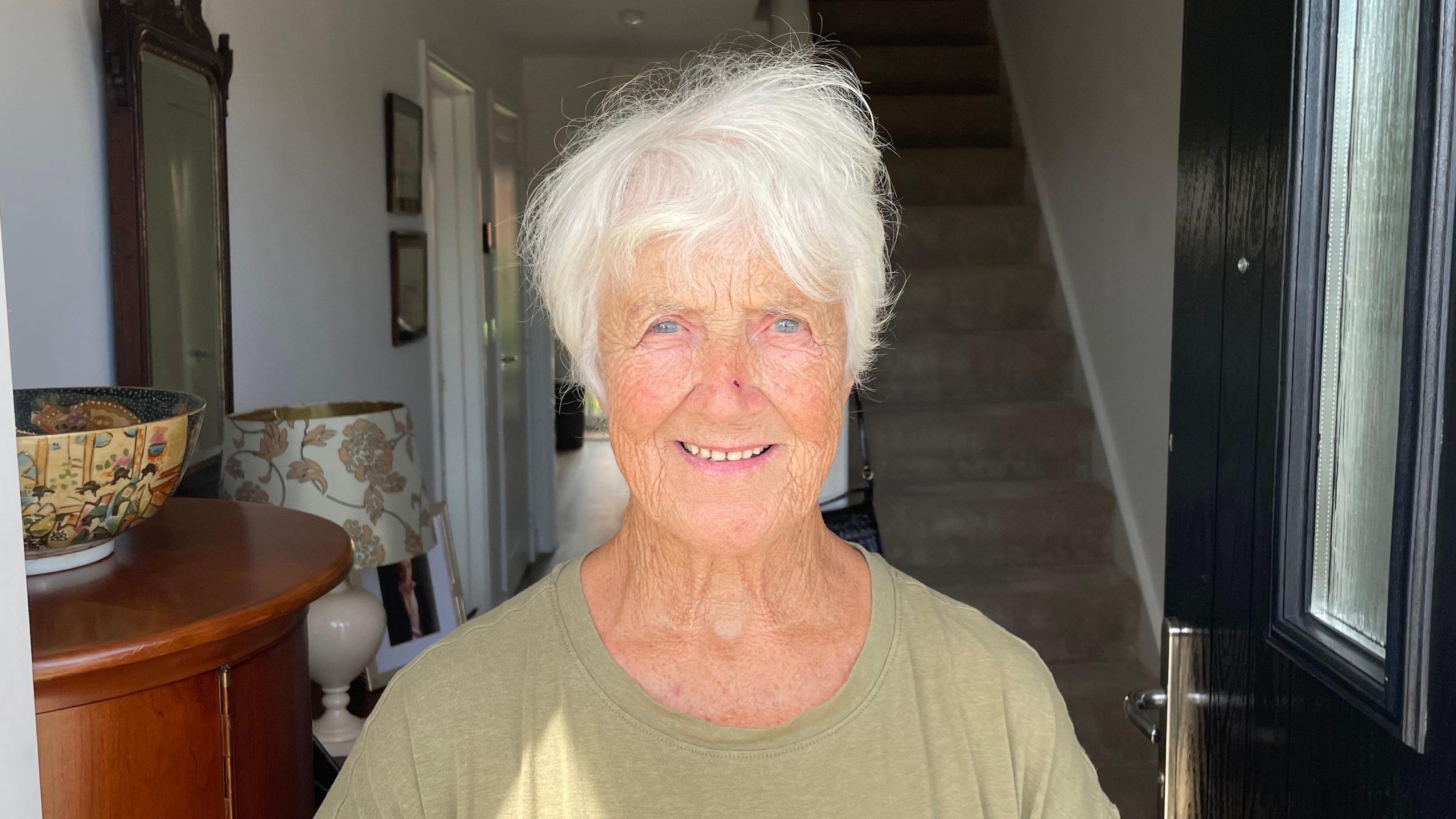
Josephine Jackson moved into a new home in Bacton 16 months ago to be nearer her daughter
Josephine Jackson, 84, says she has "fallen on my feet" after moving to the village, about six miles (10km) north of Stowmarket, 16 months ago.
She came from Oxfordshire, where she had lived for 40 years, to be nearer her daughter.
She is standing in the doorway of her new Taylor Wimpey home on the Beacon Green estate, which will have 81 homes when complete, and is one of six new estates either being built or planned for the village since 2017.
"The welcome is brilliant," she says.
She has joined the local Women's Institute and says she is as "integrated here as I was in Oxfordshire, after all those years".
She describes the "whole set-up" in Bacton as "really fabulous", with a doctors' surgery, shop, garage and pub all nearby.
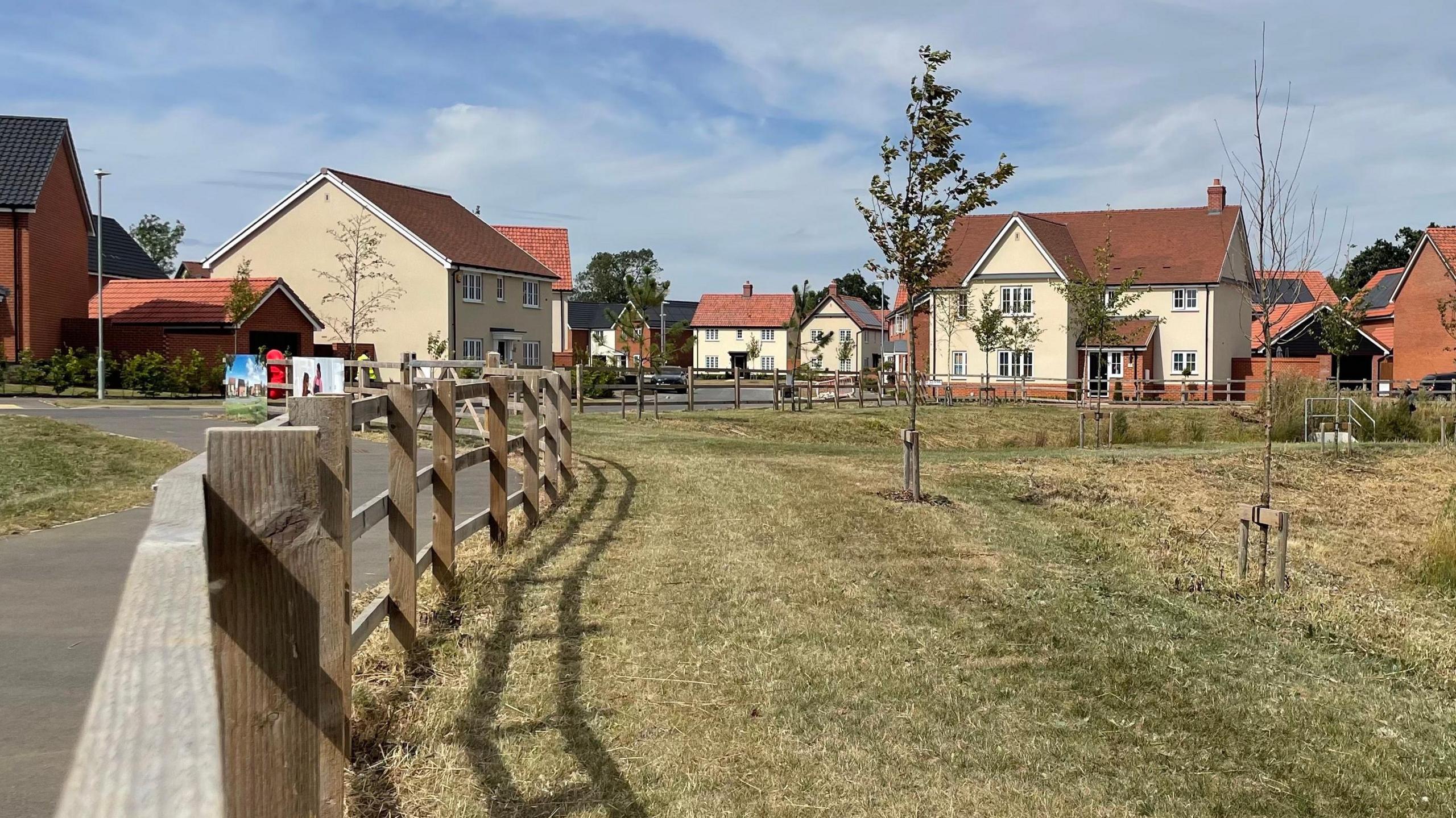
Taylor Wimpey's Beacon Green estate is the second largest new development in Bacton
The Bull, Bacton's 16th Century pub, used to overlook fields but is now opposite Beacon Green.
Co-owner Rory MacRae, 32, says "new faces" are welcome in the village.
"The people are lovely. It's happened very quickly, I must admit, but it's a nice change," he says.
The pub is busy with construction workers, new home owners, longer-term residents - and prospective property buyers.
Other locals say the roads are busier and some fear the strain on the village's sewage works.
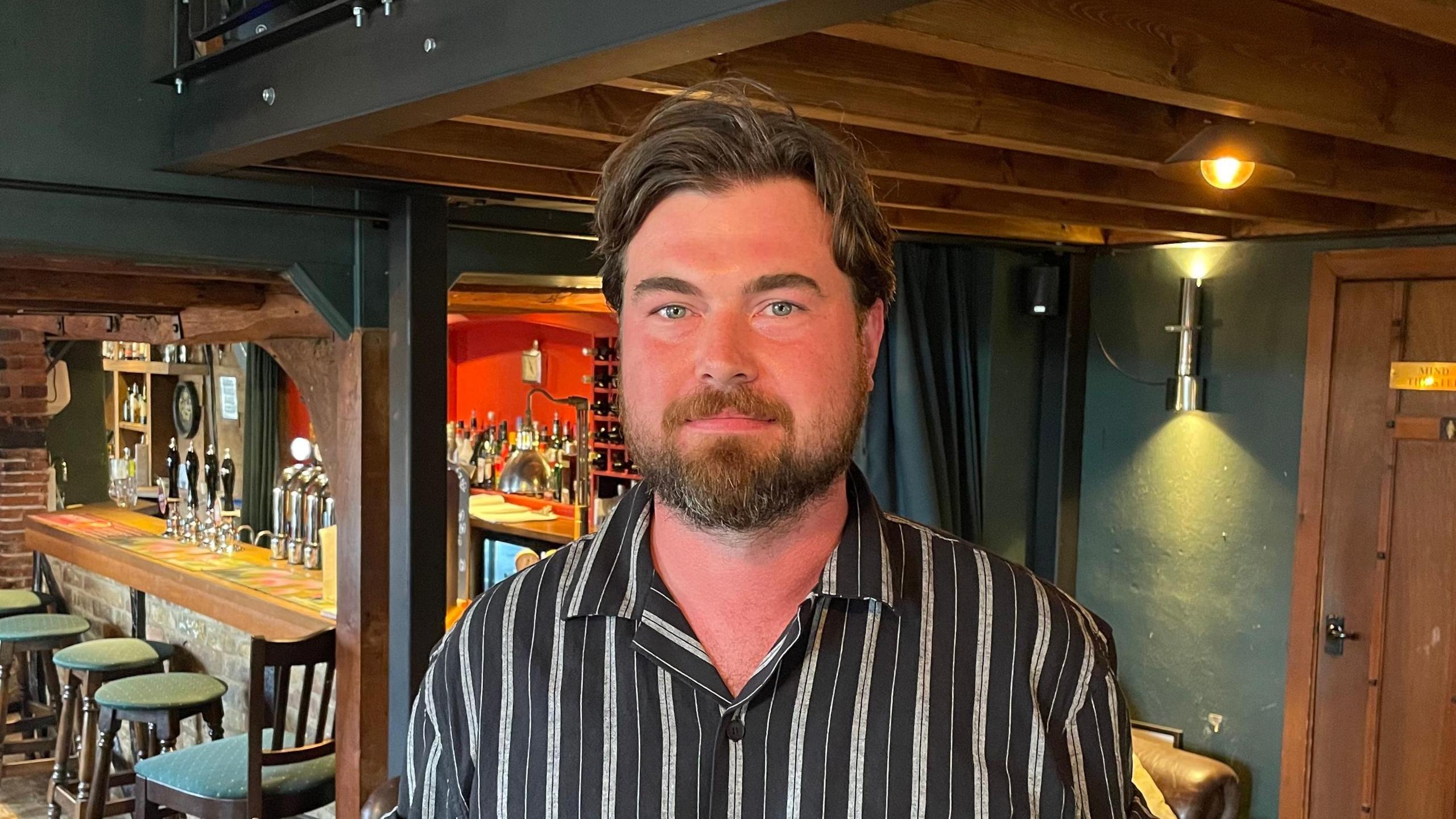
Rory MacRae has been co-owner of The Bull pub in Bacton for seven years
A recent survey of villagers, answered by 225 people, found 85% wanted very little - or no more - additional housing.
Could Bacton take more building?
"I don't think there's much space," says Mr MacRae. "I don't think there can be much more."
Mrs Jackson agrees, saying: "I think that would be really pushing it on poor old Bacton."
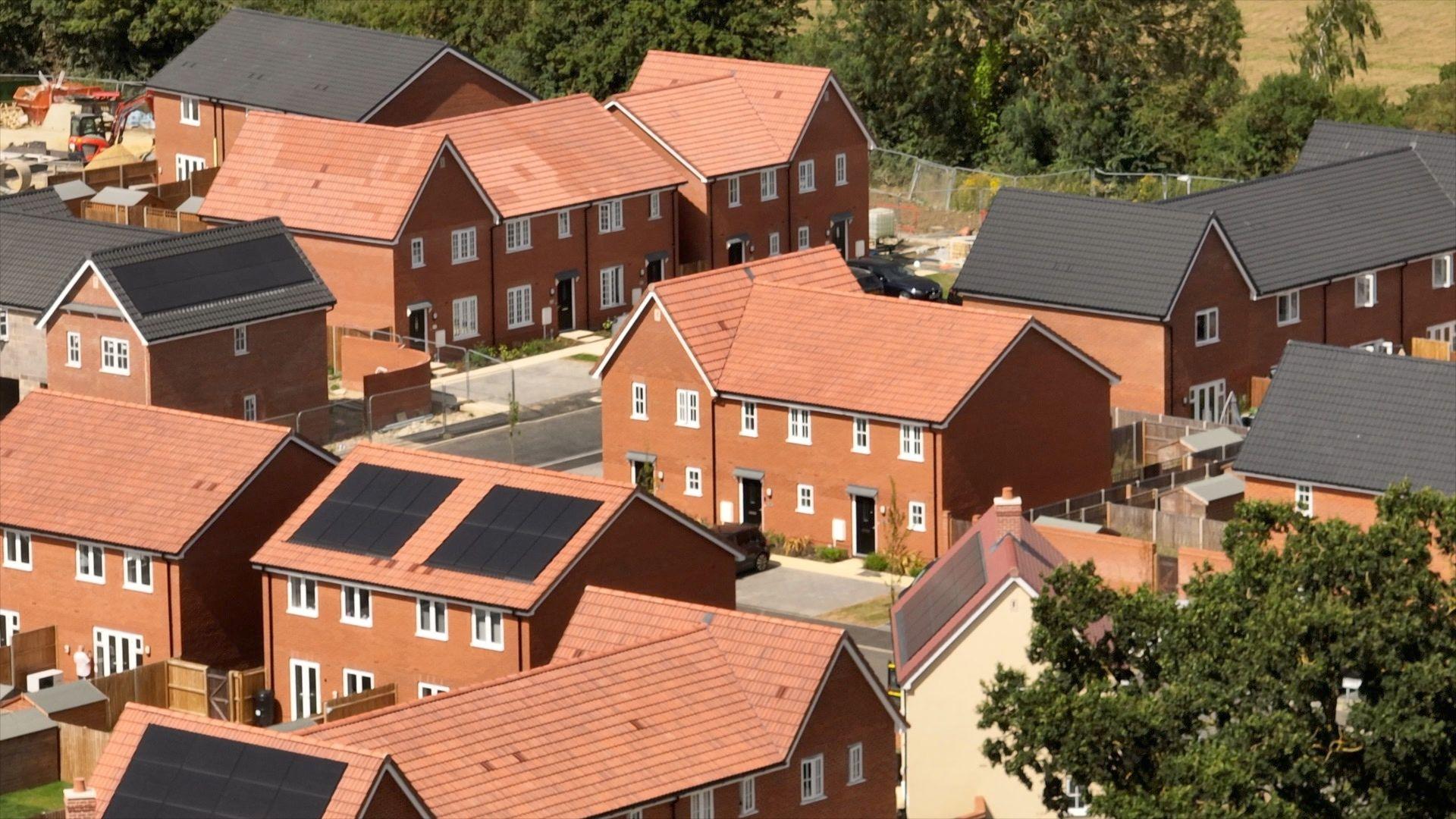
Bacton added 13 households between 2011 and 2021, according to the Census
At the time of the latest Census in 2021, Bacton had 512 households.
Among the other five estates, Meadow Rise, by Laurence Homes, is promised as a "beautifully designed new development of just 64 homes", while The Fields, from Flagship Homes, "will consist of just 51 beautiful homes".
Bellway says its 85-home Ivy Hill development is set in a "peaceful village location".
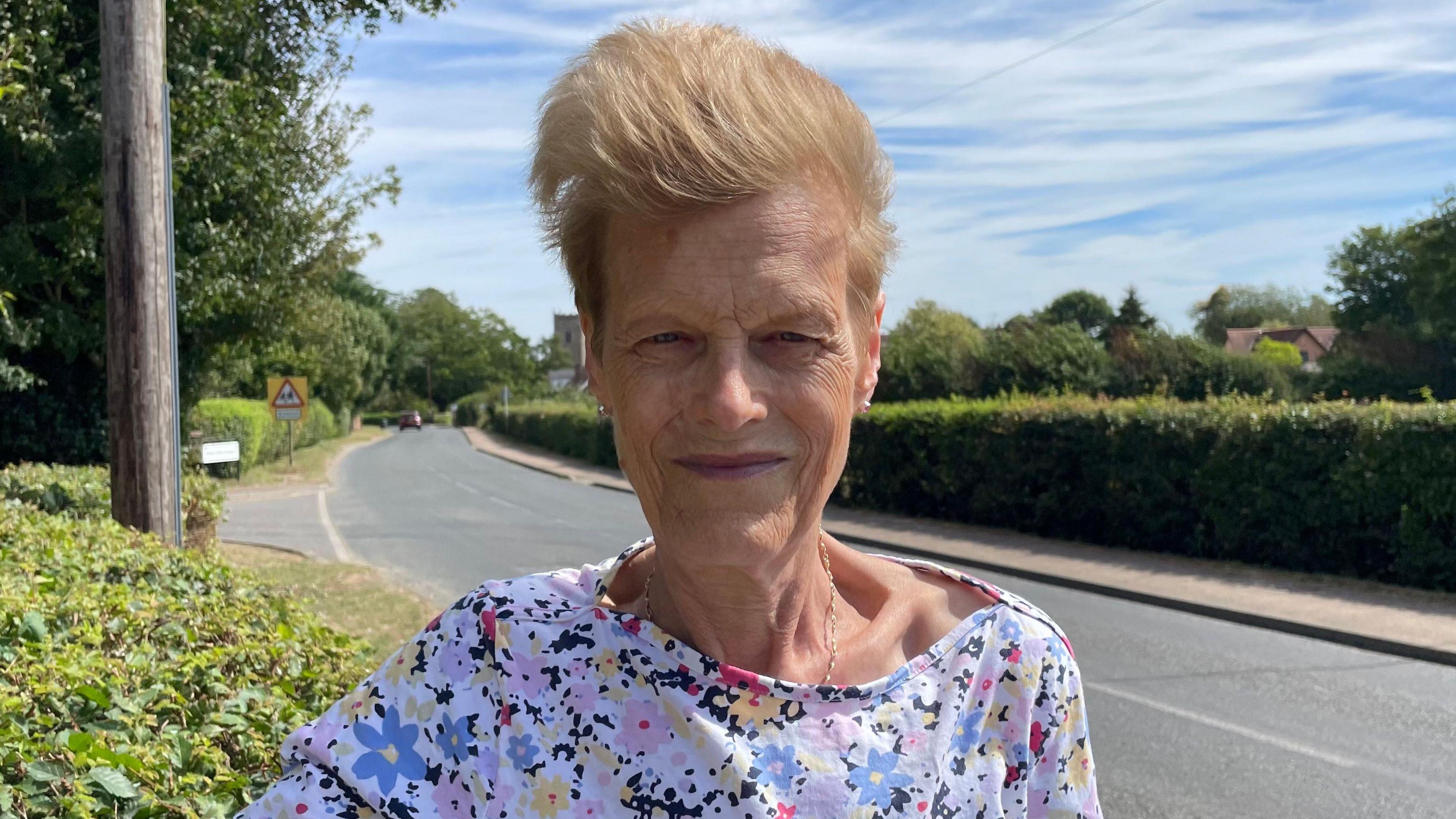
Vanessa Kingsley fears traffic, speeding and flooding could get worse with the new housing
The past few years have been "like living on a building site", says Vanessa Kingsley, a Bacton resident for 30 years.
"We just expected small developments over a 30-year period and it just seems that it's non-stop - the traffic and the building."
She has sat on the parish council for two years and now chairs it. She says the body supported plans for "smaller sites" but objected to some larger applications.
"This was suddenly a takeover of the village," the retired head teacher, 70, says.
"I love having the new people here. It's great."
But she says the "village can't cope with the pace", pointing to issues with traffic, speeding and "terrible trouble with flooding".
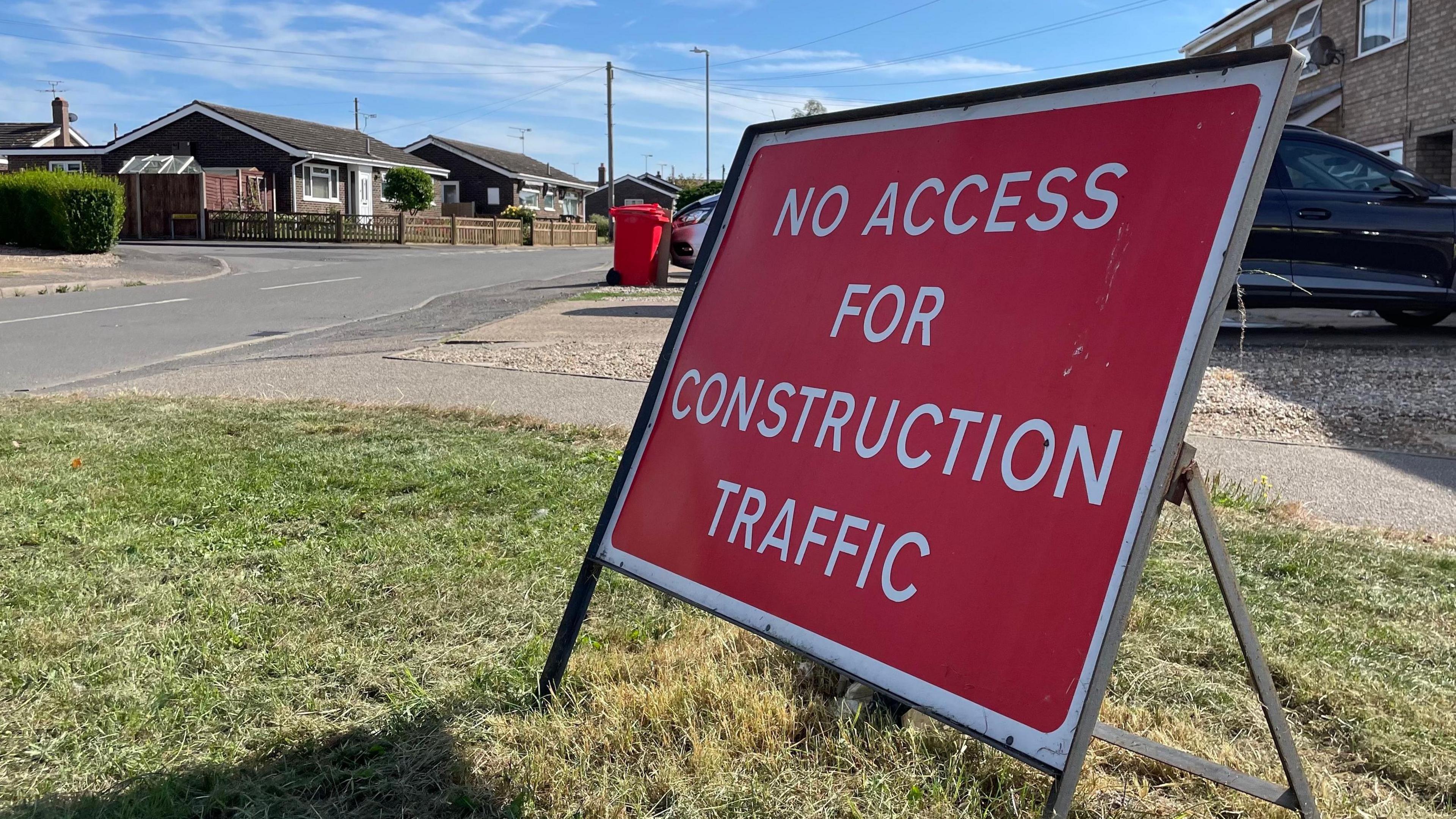
Several of Bacton's new developments have been built at the same time
Bacton is on the Ipswich to Norwich train line but has no station.
It has been served by two buses a week - to Bury St Edmunds on Wednesdays, and to Stowmarket on Thursdays, but another route is on the way.
"The jobs aren't here, so everyone will be commuting, or they're going to be retired," says former parish council chair David Chambers, 77.
He moved to Bacton nine years ago but fears its character has changed, feeling more like a "potentially urban area" than a village.
"It just seems bizarre that we've had that degree of expansion," he says.
"Frankly, enough was enough, 100, 200, 300 houses ago."
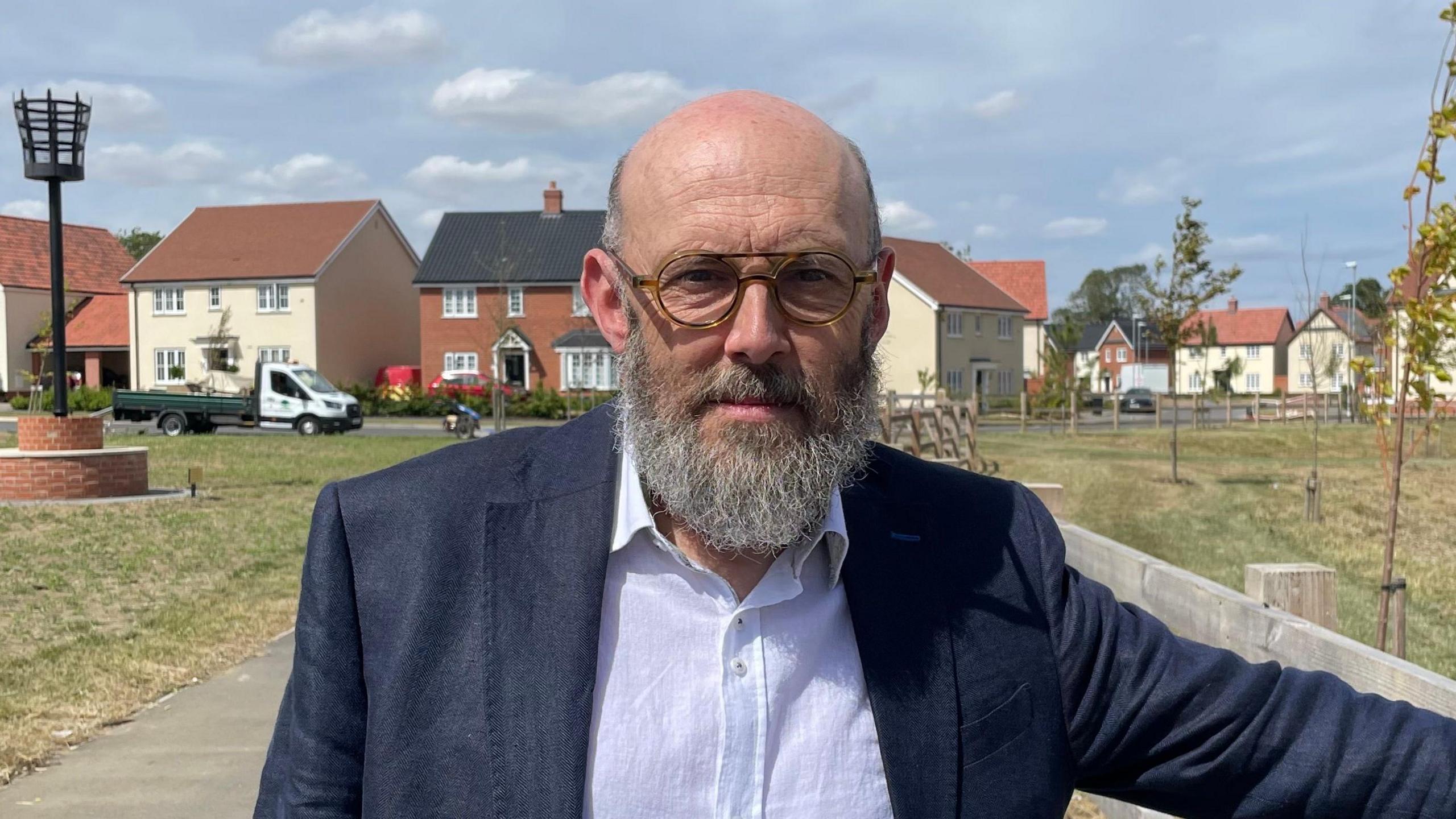
Housing rules have led to a "free-for-all" for developers in Mid Suffolk, according to councillor Andrew Stringer
According to Andrew Stringer, the council's Green cabinet member overseeing planning, Bacton is feeling the effects of a dip in housebuilding.
From March 2014 to March 2018, Mid Suffolk was supposed to build 430 new homes a year, but only added an average of 337 a year.
In June 2015, the district said it did not have sufficient sites for new homes, losing what is known as a "five-year housing land supply".
It did not fully regain it until September 2019.
National planning rules said developments in areas without a five-year land supply should be approved if they were "sustainable".
That allowed "a free-for-all" for developers, Mr Stringer says.
"Because we weren’t building enough homes, because of economic reasons - basically, there was a big crash - it means this village will almost double."
The most recent figures show the district has the second-highest rate of growth from new homes in England, external.
In 2015-16 Mid Suffolk added 278 homes. In 2022-23 it added 1,248.
Hundreds of homes are currently being built or have planning consent in the nearby villages of Thurston, Stowupland, Elmswell and Woolpit.
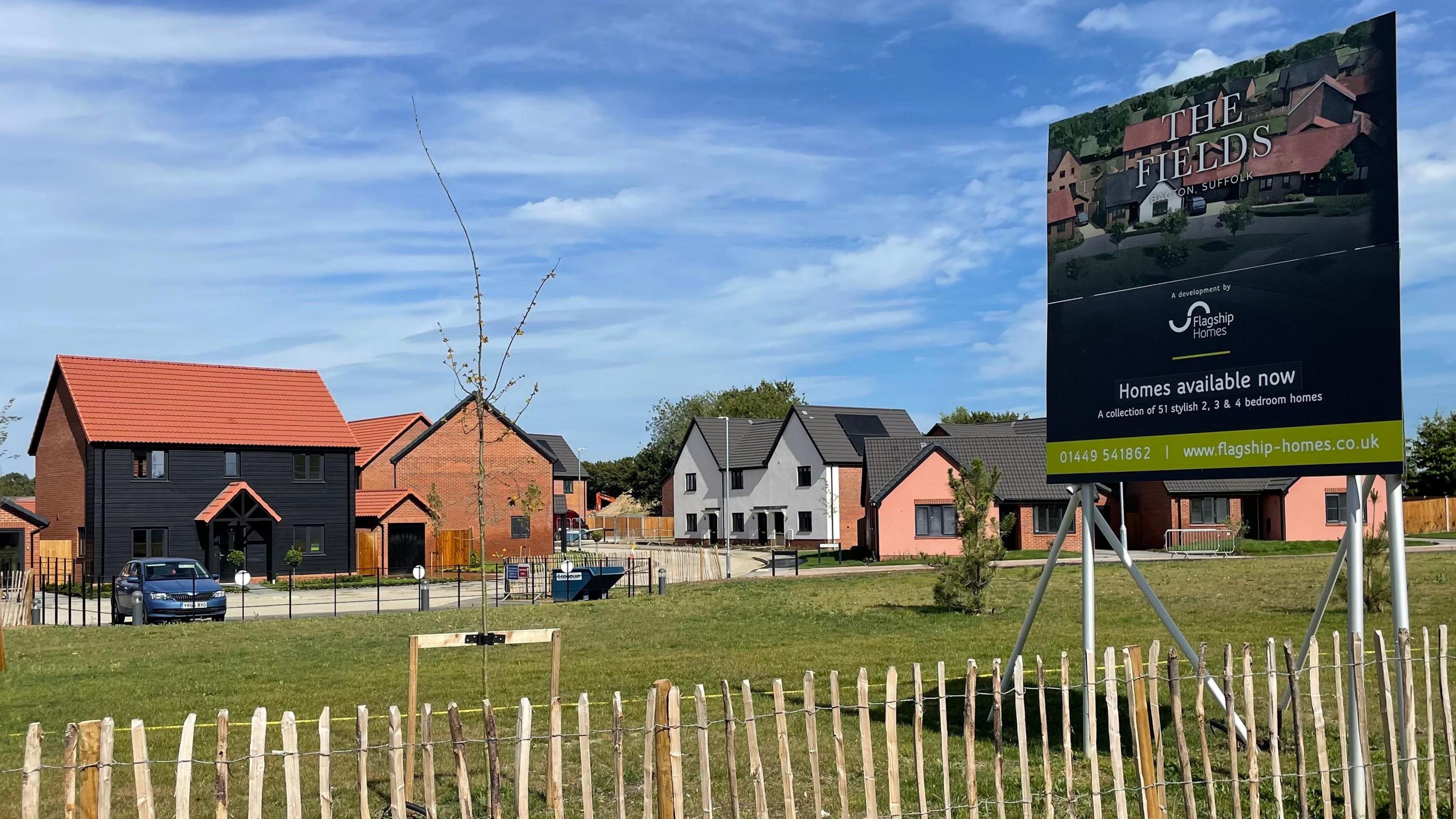
The Fields is another of Bacton's six new estates
While some of the Bacton estates were approved after Mid Suffolk regained its five-year land supply, statements supporting five out of six of the planning applications mentioned the issue.
The new government's planning reforms could strengthen rules around five-year land supply, as well as setting higher house building targets for many areas.
Last year, Mid Suffolk adopted a new local plan, which aims to build 535 homes a year. A proposed new government target could see it asked to deliver 753 a year.
Mr Stringer adds: "We’re building at this rate at the moment, but equally the new government target is just setting that bar a little bit higher, so if there is a blip, we’re going to fall under that target again and it will ‘let rip’ all over again, if we are not careful."
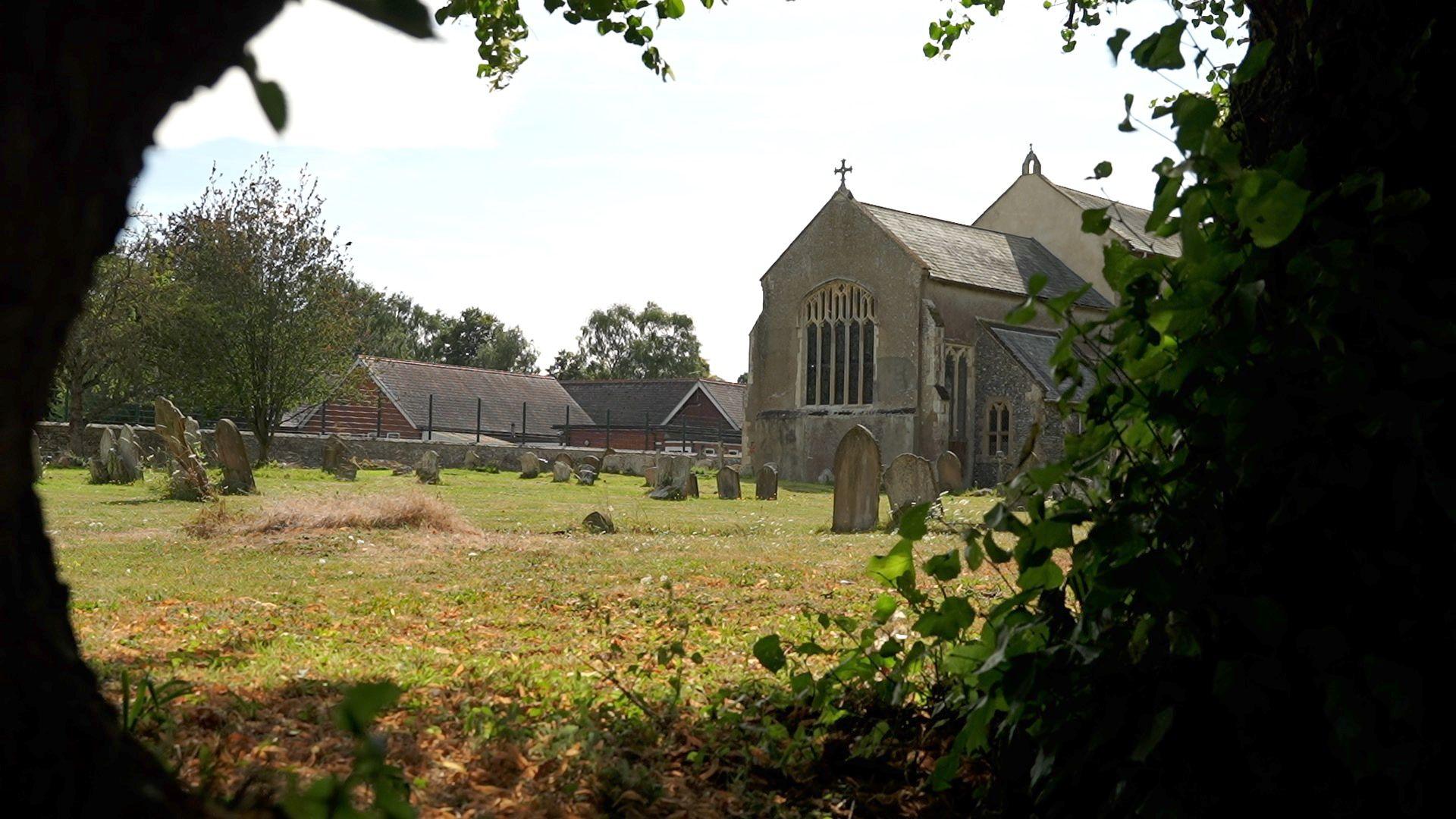
Housebuilders in Bacton say they will contribute hundreds of thousands of pounds to the community and local councils
A Mid Suffolk spokesperson says the council's local plan will "ensure residents and communities have sufficient housing, employment and inward investment, environment and heritage is protected, and the infrastructure is in place for healthy communities and thriving towns".
If the council turns down a planning application, the spokesperson adds, "we must be able to clearly demonstrate that it is based on valid material planning reasons".
Developers in Bacton point to the hundreds of thousands of pounds they pay in community contributions.
Bellway, whose Ivy Hill estate is the largest in Bacton, says that will include £543,300 towards a new primary school, £76,800 for free secondary school transport for 11-to-16-year-olds, and £852,500 in community infrastructure levy payments.
The new estates will also provide dozens of "affordable" homes.
David O'Leary, an executive director of the Home Builders Federation, said: "Councils have a duty to plan for the needs of their communities.
"Ignoring that requirement is a dereliction of duty, stifles economic growth and limits the housing opportunities of local people.
"The previous planning system - and one that the current government is looking to reinstate - ensures that inaction on the part of a council does not act as a barrier to new housing delivery."
The Ministry of Housing, Communities and Local Government has been asked for comment.
Get in touch
Do you have a story suggestion for Suffolk?
Follow Suffolk news on BBC Sounds, Facebook, external, Instagram, external and X, external.
- Published30 July 2024
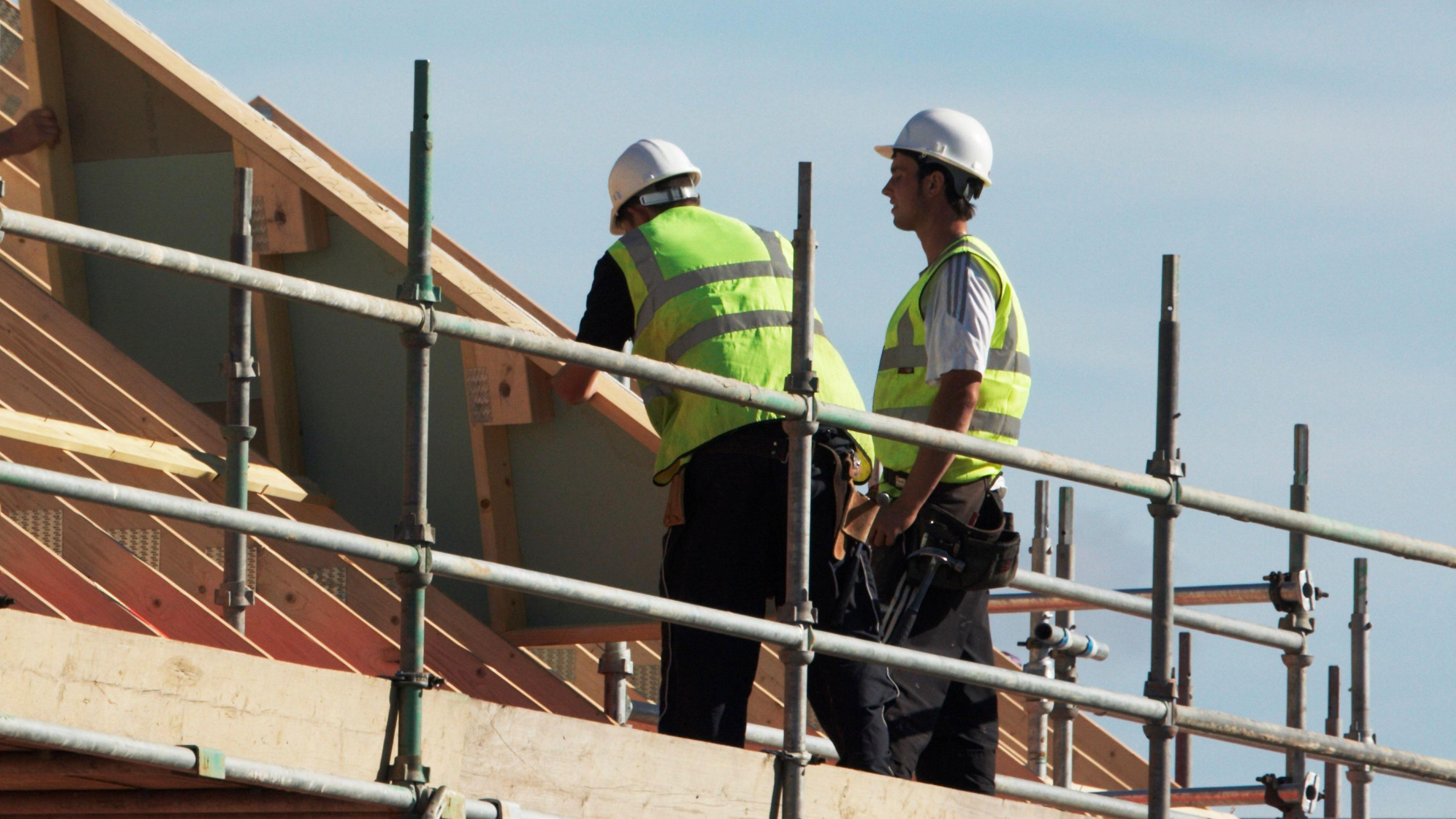
- Published21 August 2023
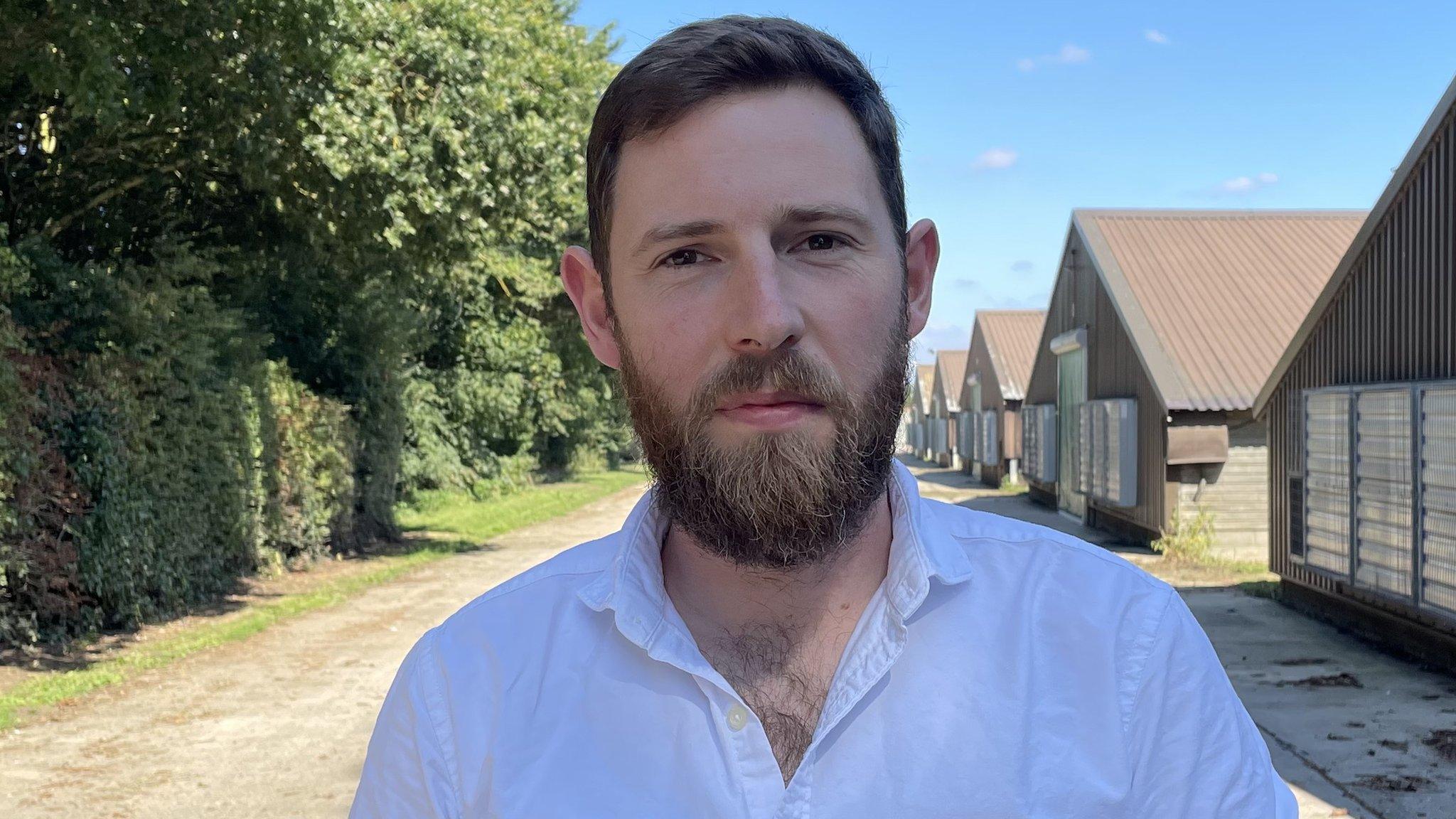
- Published30 July 2024
